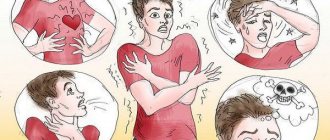- October 12, 2018
- Psychology of Personality
- Ksenga
In the age of Instagram, it is becoming increasingly rare to meet people from whom you can hear the phrase “I don’t like to be photographed.” But what if you don't like being in front of the camera? Do your friends laugh at your reluctance to be photographed and say that you should go see a therapist? Should you follow the advice of Instagram followers, or should you defend your rights not to appear in front of the camera? Let's try to figure it out.
Photo addiction is a bad habit
No matter what anyone says, the modern tendency to flaunt one’s life is frightening. People have no secrets, and modern people want to share their most intimate moments with others. They describe their emotions in detail and try to photograph everything that happens in life. Is it good? No. A person must have a personal life, which he must learn to protect from prying eyes. This should be done not only by superstitious individuals, but also by all reasonable people. Your neighbors may be interested in knowing what you eat and who you sleep with, but why do they need this information? So that they can gossip behind your back or envy you? The less others know about your life, the better it will be. Therefore, do not make a problem out of a person’s phrase: “I don’t like to be photographed.” What should a person who does not want to appear in front of the lens do? For this question, a person should search for the question on his own. Don't ask friends and acquaintances. They will only laugh at you. Conduct psychoanalysis and find the roots of your problems.
Optical illusions
Even the most sophisticated cameras inevitably distort reality, because the image inevitably passes through optical systems, the technical characteristics of which directly affect the result. Of particular importance is the focal length of the lens, which determines the viewing angle, perspective and other important points.
Models with a focal length of 4-15 mm are fisheye, which noticeably distorts the image, 24 mm are suitable for subject photography indoors, 35 mm are suitable for reportage and group shots, 70-85 mm are suitable for close-up portraits.
The shorter the focal length, the more distorted the photo is, but the distance between the camera and the face also plays an important role. Professionals are familiar with the term “perspective distortion”: the closer an object is to the lens, the more noticeably the proportions of its individual elements change. In other words, if we “take a selfie” while holding the camera at a distance of 20 cm, the nose will seem disproportionately large, because it is the part closest to the lens. At a distance of 40 cm the difference is no longer so noticeable, but at 2 m it practically disappears.
The advice is obvious: experiment. Bring the camera closer and further away, change the angle, turn in different directions, then out of many pictures, at least one will be successful.
How to look slimmer in photos than you really are: 10 simple tricks.
Raise your self-esteem
One of the most common reasons why a person does not want to appear in front of the camera is low self-esteem. Have you heard a friend say: “I don’t like to be photographed, but I want to.” This means that the lady is not confident in her abilities, and it’s time for her to think about what doesn’t suit her about her appearance. People who cannot admit their shortcomings are afraid of the camera. You should understand that you will never be a perfect person. But time passes, and you can miss a lot of moments that really need to be captured. Understand that you are a unique person, whose analogue does not exist in this world. There is no need to check with friends about the authenticity of this fact. You need to believe in him. Do you not love yourself for the right reasons? Then practice self-improvement, and your complexes will disappear over time. Do you think you are stupid - read more, think that you have a lot of acne? Go to a cosmetologist. Remember that a way out can always be found, you just need to take one step and start searching.
There won't be a second chance
For better or worse, the first impression often matters. And there is a scientific explanation for this: the amygdala in the brain, which is responsible for emotions and decisions, judges the “trustworthiness” of appearance in the first 33 milliseconds. The subjects did not even remember that they saw someone's faces, but their brains managed to produce evaluative signals.
Scientists from Princeton have identified traits that in most cases inspire trust. An angry frown and downturned corners of the mouth are obviously a losing option, but a slightly surprised look and lips curved in a half-smile are a sure bet.
To look good in photographs, you need to pay attention to the details that form the first impression. You can even rehearse in front of a mirror, trying on friendly and inviting expressions - according to research, artificial and natural benevolence are not much different visually. Neat clothes, bright elements, background - important little things that reveal personality.
Traumas from childhood
Why don't people like to be photographed? Psychologists say that parents can impose an inferiority complex on their child, which will then be difficult to eradicate. Do you remember that as a child you often heard the phrase that you have crooked legs, hair like antennae, or that you are too fat? Search through your memories and think about what your parents told you. Remember all the phrases that could somehow affect your self-esteem. Think not only about the words that referred to your appearance, but also about the expressions that your parents used to disparage your abilities. After you write down all the offensive phrases, you will need to work through each of them. For example, as a child, your mother called you fat and said that boys don’t like this type. Remember all your girlfriends who do not have an ideal body, but who were able to find family happiness. Stop being embarrassed by extra pounds and understand that mom was wrong. When you realize this, you will be able to feel good in front of the camera, as the childhood trauma will be processed.
From left to right and vice versa
Speaking of twirling, students at Wake Forest University in North Carolina were asked to choose the most attractive photos of men and women oriented differently towards the lens. The winners were 78% of female and 56% of male portraits showing the left half of the face, despite the fact that both real and mirror images participated in the experiment.
According to psychologists and physiognomists, the left side of the face reflects emotions, and the right side reflects leadership qualities and confidence. That is why on the left there are usually more facial wrinkles and other marks that can tell about emotional experience. In general, for a dating site we turn the left cheek to the camera, and for a work resume - the right.
The best cities in Russia and Europe for those who love to eat delicious food
Accept yourself
There are no perfect people in this world. Therefore, you should not strive for the notorious ideal. The phrase often flashes through your head: “I don’t like being photographed.” Psychologists say that antipathy to posing affects individuals who cannot accept themselves. You need to understand that you are a good person with a unique appearance. Yes, you are overweight and have freckles. or your height is below average. And although you can lose those extra pounds, you won’t be able to get rid of freckles or grow bigger. Whatever you can change about yourself, change it. And what you cannot fix, you should come to terms with. Accept yourself for who you are. Realize that if you give up taking photos, you still won't be able to avoid mirrors. Yes, you may not be caught by a photographer, but every day you will have to catch the eyes of hundreds of people. Try to understand that your appearance is unique. Accept yourself for who you are and don't chase an unattainable ideal.
A smile will make everyone brighter (or not everyone)
Researchers from the Czech Republic claim that smiling people look smarter. And also that others tend to determine male intelligence by facial features. Intellectuals, as a rule, seem to be the owners of elongated faces with far-set eyes, a large nose, a pointed chin and barely raised corners of the lips. For some reason, similar requirements are not imposed on women.
But the University of British Columbia urges people not to overdo it with a smile. Volunteers evaluated portraits of people photographed with different emotions and came up with the following paradox: men liked ladies who were glowing with happiness, but they, in turn, did not show any favoritism towards those who smiled. But they liked the proud and empathetic faces of the gentlemen. Go decipher this feminine logic.
April 10, 2020
Love yourself
Have you accepted yourself? Now you should love your reflection. Regardless of whether nature has endowed you with beauty or not, you should love yourself. A person who treats himself well, pampers himself, pampers and cherishes himself is visible from afar. Such a person glows from within and therefore seems attractive regardless of appearance. Are you wondering, “Why don’t I like being photographed?” It means you don't love yourself. A person with high self-esteem, who enjoys looking in the mirror, feels confident in front of the lens, and the camera does not bother him at all.
How to love yourself? Start by pampering yourself with some small gift every day. It could be ice cream on a hot summer day or a delicious bun that you eat with dinner. You can pamper yourself with a warm bath before bed or a free hour of time that you can devote to watching TV series. Any method will do. Once you love yourself, you will understand that there is nothing scary about a camera. After all, a person is afraid not of the photographs themselves, but of the fact that later someone might see the photographs and start discussing them.
Sign up for courses
Why don't people like to be photographed? Many individuals do not know how to behave in front of a camera, are embarrassed by lenses, and, as a result, do not like the process of photographing. How to overcome inner fear? You can sign up for modeling courses. At a modeling school, you will be taught how to walk gracefully, take the right poses, and act relaxed in front of the camera. This kind of work on yourself will help you not only overcome your fears, but also learn how to behave in public. You will no longer be ashamed of yourself and your body. When a person is relaxed, he does not worry about how he will turn out in the photo and behaves confidently. Which shots come out best? That's right, natural. The more casual you are, the better. Modeling school will help you overcome your inner complexes, and will also teach you how to look beautiful in photographs in any situation.
My light, mirror, be silent
We are used to seeing ourselves in the mirror, but we don’t even think that the image there is upside down. Habit usually gives rise to sympathy, so the reflected image is liked more than the one captured in the photograph.
Popular portrait artist Kim Ayres from the UK cites a stunning statistic: more than 90% of his interlocutors hate being photographed and consider themselves the most unphotogenic in their family, circle of friends, or even in the whole world. Sometimes the master is cunning and “mirrors” the pictures on the computer - and, lo and behold, people are immediately satisfied with what they see.
There are no completely symmetrical faces: most have one eye slightly larger than the other, one eyebrow is curved and the other straight, the smile in one corner of the mouth is slightly wider. And the hair is usually laid on a certain side.
If in reality the nose is bent by 2 mm to the left, then in the picture it will seem that it is skewed to the right, and by all of 4 mm. When Kim Ayres shows someone the upside-down Mona Lisa, it does not cause wild delight, because da Vinci’s canons are firmly rooted in the mind. That’s why in group photos everyone is cute, but you can’t look at your own face without sighing. Because it is not upside down the way you are used to seeing it in the mirror.
The True Mirror company produces mirrors for daredevils that show a real image. Mini versions for selfies cost 120 USD, full-size ones - 2000 USD, demand is still low.
Researchers from the University of Wisconsin in Madison (USA) knew about everything back in 1977. Participants in the experiment were shown two portraits of themselves from one negative: the original and a mirrored one. Almost everyone preferred the second option, explaining the choice by changes in angle, head tilt or lighting, which were not in sight.
Pay attention to your appearance
Does the thought “I don’t like taking pictures” keep you from living normally? What should a girl whose friends constantly take pictures for Instagram do? You need to work on your appearance. Girls often worry that in photographs they will look worse than their friends. Such thoughts do not give the opportunity to relax. How to overcome your fear? Go to the hairdresser and find a more suitable hairstyle, and then go shopping and update your wardrobe. External transformation will not keep you waiting long for internal changes. When a lady is confident that she looks irresistible, she is not afraid that the photo will be unsuccessful. The girl will become bolder and appear in front of the camera more often. And when she is convinced that her new image is no worse than her friends, she will easily reconsider her attitude to the process of photographing. She might even want to start her own Instagram. When there is something to show, a person will not be embarrassed about his appearance.
Learn to refuse
Do you often have to say the phrase: “I don’t like being photographed?” You should explain your thoughts more clearly to your friends. If you understand that you are not ashamed of your body and do not experience inferiority complexes, then work on your ability to refuse. Good-natured people can't always say no to their friends. Do you fundamentally not want your pictures to end up on the Internet? Give reasons for your position and explain to your friends that their habit of photographing you should remain a thing of the past. Do not make any exceptions to this rule. You don't want to be photographed? This is your right, no one can force you to do what you don’t like. Convey this idea to your friends and make them respect your opinion.
Talk to the photographer
Do you understand that your phrase “I don’t like to be photographed” is not entirely honest? You might love doing this if you knew how to be confident in front of the camera. Don't have time to take a modeling course? Then find a good photographer who will agree to talk with you. From time to time, photographers give lectures to anyone who wants to learn how to be confident in front of the camera. You need to go to a personal meeting or a group lesson. A good specialist will tell you and show you the poses that always turn out well in photographs, and will also tell you what your working side is and what images you should try on. After a detailed analysis of your appearance, it will become clear to you what should be exposed and what would be better to disguise. A good consultation will help you gain confidence and also equip you with all the necessary knowledge to stand at ease in front of the camera.
Have a professional photo shoot
Have you ever visited a professional photographer? Then your phrase: “I don’t like to be photographed” will sound funny. You may simply not know how to stand in front of the lens correctly. A good specialist will help you relax and also teach you some tricks that you can use in the future. A professional photographer will find you specialists who will select for you the image that will highlight your natural beauty. A beautiful hairstyle, proper makeup and good angles will provide you with gorgeous pictures at the end. Such positive experiences will help you gain self-confidence and subsequently feel more relaxed in front of the lens.
Augmented Reality
There is no point in denying it: almost every smartphone owner has photo enhancement apps installed. With a slight movement, erase a wrinkle or pimple, improve your complexion, whiten your teeth, narrow your waist - the temptation is great, the only question is a sense of proportion.
Modern gadgets can already embellish photos on the fly, automatically.
It’s just that their own image in the human mind is already different from the real picture, and the majority, oddly enough, consider themselves more attractive than they really are. This fact was proven by Chicago psychologist Nicholas Epley, who in several stages improved photographs of respondents in Photoshop, focusing on portraits of generally recognized sex symbols. The result was a set of several photographs, each 10% more “beautiful” than the previous one, and the participants had to guess the original.
Most people thought the photo was 20% photoshopped real, which means their expectations about themselves are too high. Then the respondents were shown a series of unfamiliar faces, among which their own flashed, and they identified the embellished photos faster, while recognizing the real ones more slowly. The same thing happened with portraits of friends, but strangers were assessed more objectively.








